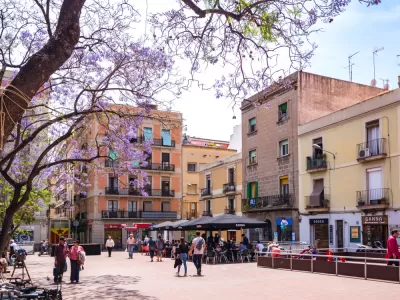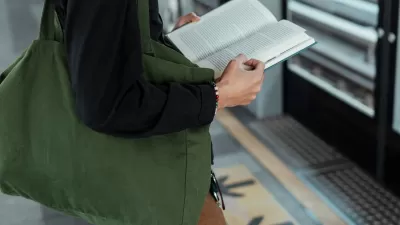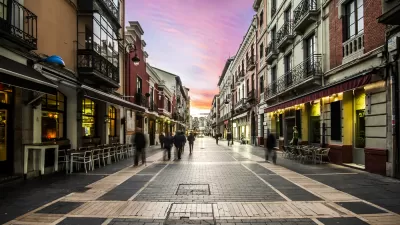USA Today debunks the false claim that the United Nations’ call for enabling 15-minute cities is a coded plan to institute ‘climate change lockdowns.’

Writing in USA Today, Isabella Fertel fact-checks the conspiracy-minded claim that the concept of the 15-minute city is a global plot to create “climate change lockdowns.”
To be clear, the United Nations 2030 Agenda for Sustainable Development makes zero mentions of lockdowns or keeping people in their own neighborhoods. Rather, the 15-minute city is shorthand for the goal of making transit, jobs, healthcare, parks, and all the other amenities we come to expect from city life accessible to all residents within a 15-minute walk or bike ride.
Carlos Moreno, who coined the concept, says “The core of the ‘15-minute city’ is an open city, a human city, an interconnected city.” Moreno adds, “Of course, all citizens are free to go where they want. There are no constraints.” Dan Luscher, founder of the 15-Minute City Project, says the concept is about promoting, not limiting, mobility.
FULL STORY: Fact check: False claim ‘15-minute cities’ are actually ‘climate lockdowns’

Planetizen Federal Action Tracker
A weekly monitor of how Trump’s orders and actions are impacting planners and planning in America.

Map: Where Senate Republicans Want to Sell Your Public Lands
For public land advocates, the Senate Republicans’ proposal to sell millions of acres of public land in the West is “the biggest fight of their careers.”

Restaurant Patios Were a Pandemic Win — Why Were They so Hard to Keep?
Social distancing requirements and changes in travel patterns prompted cities to pilot new uses for street and sidewalk space. Then it got complicated.

Platform Pilsner: Vancouver Transit Agency Releases... a Beer?
TransLink will receive a portion of every sale of the four-pack.

Toronto Weighs Cheaper Transit, Parking Hikes for Major Events
Special event rates would take effect during large festivals, sports games and concerts to ‘discourage driving, manage congestion and free up space for transit.”

Berlin to Consider Car-Free Zone Larger Than Manhattan
The area bound by the 22-mile Ringbahn would still allow 12 uses of a private automobile per year per person, and several other exemptions.
Urban Design for Planners 1: Software Tools
This six-course series explores essential urban design concepts using open source software and equips planners with the tools they need to participate fully in the urban design process.
Planning for Universal Design
Learn the tools for implementing Universal Design in planning regulations.
Heyer Gruel & Associates PA
JM Goldson LLC
Custer County Colorado
City of Camden Redevelopment Agency
City of Astoria
Transportation Research & Education Center (TREC) at Portland State University
Camden Redevelopment Agency
City of Claremont
Municipality of Princeton (NJ)





























